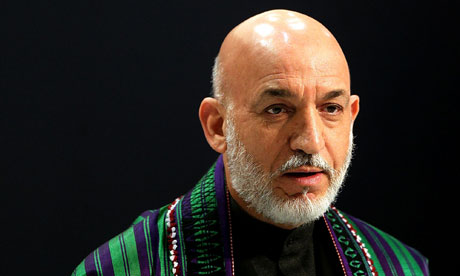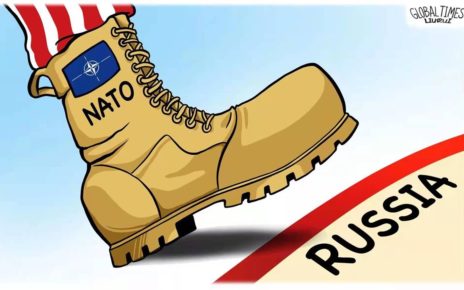 In the era of the Global War on Terror there has been a shift in strategic thinking and operational planning. In the wars in Afghanistan and Iraq this shift has included a much greater role for Private Security Companies (PSC’s) who employ contractors to do jobs that were formerly military responsibilities. PSC’s refer to armed contractors who provide private security for anything from embassies, to convoy’s, to reconstruction projects, to high level officials, among other things.The use of these private contractors has increased on an unprecedented scale during the conflicts in Afghanistan and Iraq. In the first Gulf War of 1991 the ratio of private contractors to soldiers was estimated at 1-60, this grew to 1-10 in Bosnia, and 1-2 in Kosovo. At its height in Iraq in 2008 the number of private contractors actually outnumbered military troops, with approximately 173,300 private contractors being employed by the U.S. government compared to 146,000 troops. The same goes for Afghanistan where in 2013 there were an estimated 108,000 private contractors compared to 65,700 troops.
In the era of the Global War on Terror there has been a shift in strategic thinking and operational planning. In the wars in Afghanistan and Iraq this shift has included a much greater role for Private Security Companies (PSC’s) who employ contractors to do jobs that were formerly military responsibilities. PSC’s refer to armed contractors who provide private security for anything from embassies, to convoy’s, to reconstruction projects, to high level officials, among other things.The use of these private contractors has increased on an unprecedented scale during the conflicts in Afghanistan and Iraq. In the first Gulf War of 1991 the ratio of private contractors to soldiers was estimated at 1-60, this grew to 1-10 in Bosnia, and 1-2 in Kosovo. At its height in Iraq in 2008 the number of private contractors actually outnumbered military troops, with approximately 173,300 private contractors being employed by the U.S. government compared to 146,000 troops. The same goes for Afghanistan where in 2013 there were an estimated 108,000 private contractors compared to 65,700 troops.
The exact amount spent on private security during the wars in Afghanistan and Iraq is not known but it is estimated to be in the tens of millions. From 2001-2011 the Canadian International Development Agency (CIDA) now a division of the Department of Foreign Affairs, Trade and Development (DFATD) spent $1.65 billion on reconstruction projects in Afghanistan and another 300 million between 2011-2014. Although this reflects total reconstruction spending, most of the projects include a substantial private security budget to hire PSC’s to provide protection and security to development projects and personnel. For example Canada spent around $10 million of their $50 million budget for the Afghan Dahla dam project on private security, and nearly $8 million was transferred to a PSC called Armorgroup Securities, which provided protection for diplomats and provided security for the Canadian embassy in Afghanistan.
In the U.S. the numbers are even higher with some $160 billion spent on private contracts in both the wars in Afghanistan and Iraq. Although there are no official figures on how much of this money is being spent on actual private security contractors, DynCorp International (a PSC) alone received $8 billion worth of contracts from the U.S. government.
Supporters of privatization and outsourcing list a variety of benefits for using PSC’s in modern conflicts. One of the most common arguments advocated by defence strategists is that contractors provide an invaluable service as ‘force multipliers.’ Greater support from private contractors allows the army to deploy less combat service support personnel, which allows more soldiers to engage in core military functions. This sentiment has been shared by Capt. Yves Desbiens, spokesman for Canada’s Task Force Kandahar, when he said “Our Troops benefit from both the important services and invaluable local knowledge provided by these individuals…with these agreements in place, Canadian forces personnel are able to focus their efforts on the tasks that deliver the greatest value to the mission.”
There are two other commonly held arguments, the first being that PSC’s provide more innovation and efficiency compared to the standard army. PSC’s are characterized by a low level of permanent employees, hiring forces only when tactically required. They provide an unprecedented degree of flexibility as a company often hand develops teams for a specific project, and disassemble the team when the mission is complete. Additionally, while contractors are economically beneficial in the short-term they are also less costly in political capital. As the work and exploits of private contractors are not often reported in the media, nor are they associated with the national forces, their work does not carry the same scrutiny as regular forces.
However, there have been a multitude of issues involving private contractors in both Afghanistan and Iraq which have had vast consequences for the overall mission. A lack of coordination between contractors and the military, reckless behavior by private forces, lack of oversight and accountability of PSC’s, as well as their very ambiguous legal status have opened the missions in Afghanistan and Iraq to an ever-increasing vulnerability. For example, the PSC’s that Canada employed for the protection of the Dahla dam project were linked to allegations of corruption and were also involved in an armed standoff with Canadian security officials in 2010. Armorgroup Securities Ltd, which Canada paid to were also recently cited in a U.S. Senate investigation pertaining to strategic partnerships between Afghan warlords who had previously been engaged in bribery, kidnapping, and murder of Western private security forces.
This article has only shown a fraction of the issues that have been reported about PSC’s in Afghanistan and Iraq. With the increasing shift towards the privatization of modern warfare in recent years this issue is quickly gaining importance within the international community, both tactically and strategically. If the use of PSC’s in warfare is to become the norm in future conflicts and Western governments continue to spend large portions of their military budget on their use, major issues of accountability and oversight must be addressed in order to ensure the long-term security and effectiveness of our missions abroad.




